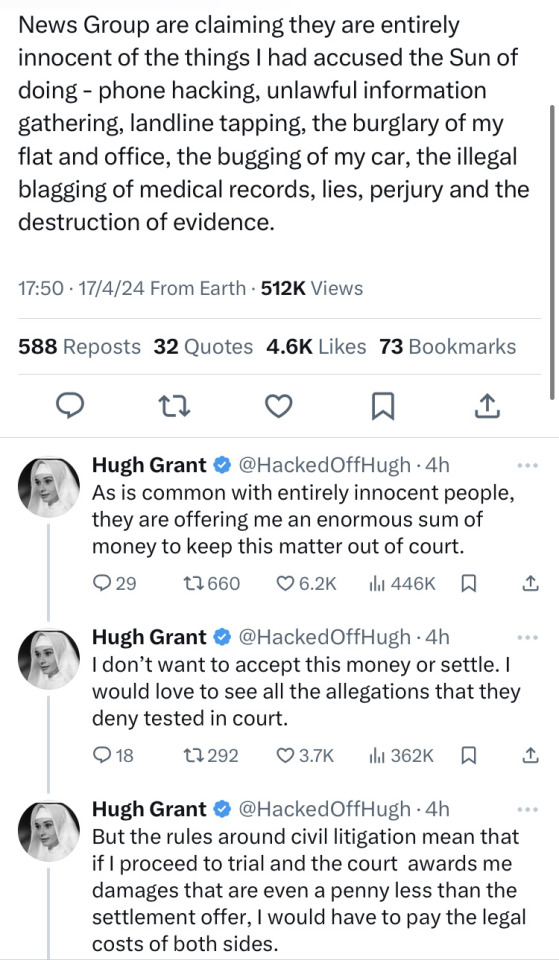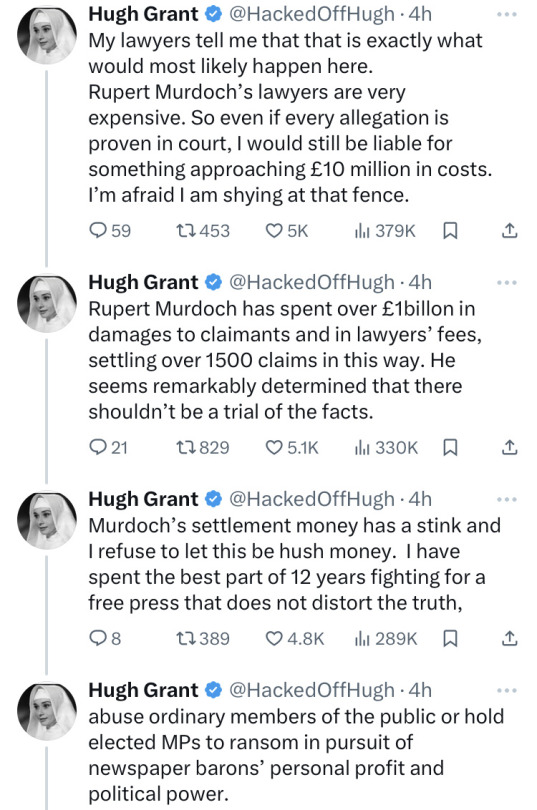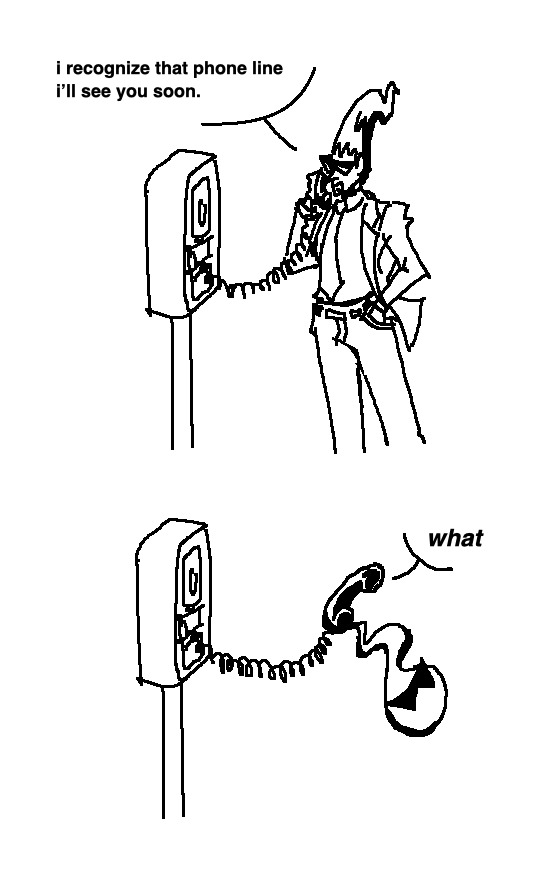#CORPORATION LAW
Text

Bar Review Day 15. 83 days to the bar.
Too sad to study effectively. Idk how many pages I managed. Worried because I have plans tomorrow and can't study then either.
#corporation law#law student#studyblr#law studyblr#law stuff#study motivation#study with me#study at home#bar review#bar exam
0 notes
Text

#capitalism#late stage capitalism#anti capitalism#neoliberal capitalism#fuck capitalism#capitalismo#inequality#economics#corporations#minimum wage#vote blue#vote democrat#please vote#voting#election 2024#get out the vote#american politics#us elections#child labor laws#child labor#child workers#kamala harris#vote kamala#kamala 2024#kamala khan#kamala for president#harris#president#presidential#election
3K notes
·
View notes
Text
"We're like family here"


#one piece#one piece shitpost#roronoa zoro#black leg sanji#vinsmoke sanji#zanji#zoro#one piece fanart#friendspiration#corporate life#one piece au#shitty doodles#brainrot with friends#luffy#monkey d luffy#trafalgar law
573 notes
·
View notes
Text


wow. "chiquita" and "death squads" are not things i expected to see in the same sentence.
#chiquita banana#human rights abuses#paramilitary death squad#florida jury#earthrights international#autodefensas unidas#colombia civil war#united fruit company#1928 strike#colombian military#corporate accountability#chiquita lawsuit#compensation#human rights violations#worker rights#historical violence#international law#jury verdict#colombian workers#american corporation
513 notes
·
View notes
Text
people think I'm kidding when I say that I believe shoplifting from corporations is okay. you need/want that thing? take that shit and try not to get caught (some security guards can be really fucking violent so be careful).
#fuck corporations#this isnt about small buisnesses btw#shoplifting#punk#anarchopunk#anarchist#anarkata#anarchism#queer punx#queer anarchism#fuck capitalism#anarcha queer#queer punk#anarchoqueer#everything should be free#fuck the law#anti capitalism#anti capitalist
1K notes
·
View notes
Text
The long, bloody lineage of private equity's looting

Tomorrow (June 3) at 1:30PM, I’m in Edinburgh for the Cymera Festival on a panel with Nina Allen and Ian McDonald.
Monday (June 5) at 7:15PM, I’m in London at the British Library with my novel Red Team Blues, hosted by Baroness Martha Lane Fox.

Fans of the Sopranos will remember the “bust out” as a mob tactic in which a business is taken over, loaded up with debt, and driven into the ground, wrecking the lives of the business’s workers, customers and suppliers. When the mafia does this, we call it a bust out; when Wall Street does it, we call it “private equity.”
It used to be that we rarely heard about private equity, but then, as national chains and iconic companies started to vanish, this mysterious financial arrangement popped up with increasing frequency. When a finance bro’s presentation on why Olive Garden needed to be re-orged when viral, there was a lot off snickering about the decline of a tacky business whose value prop was unlimited carbs. But the bro was working for Starboard Value, a hedge fund that specialized in buhying out and killing off companies, pocketing billions while destroying profitable businesses.
https://www.salon.com/2014/09/17/the_real_olive_garden_scandal_why_greedy_hedge_funders_suddenly_care_so_much_about_breadsticks/
Starboard Value’s game was straightforward: buy a business, load it with debt, sell off its physical plant — the buildings it did business out of — pay itself, and then have the business lease back the buildings, bleeding out money until it collapsed. They pulled it with Red Lobster,and the point of the viral Olive Garden dis track was to soften up the company for its own bust out.
The bust out tactic wasn’t limited to mocking middlebrow family restaurants. For years, the crooks who ran these ops did a brisk trade in blaming the internet. Why did Sears tank? Everyone knows that the 19th century business was an antique, incapable of mounting a challenge in the age of e-commerce. That was a great smokescreen for an old-fashioned bust out that saw corporate looters make off with hundreds of millions, leaving behind empty storefronts and emptier pension accounts for the workers who built the wealth the looters stole:
https://prospect.org/economy/vulture-capitalism-killed-sears/
Same goes for Toys R Us: it wasn’t Amazon that killed the iconic toy retailer — it was the PE bosses who extracted $200m from the chain, then walked away, hands in pockets and whistling, while the businesses collapsed and the workers got zero severance:
https://www.washingtonpost.com/news/business/wp/2018/06/01/how-can-they-walk-away-with-millions-and-leave-workers-with-zero-toys-r-us-workers-say-they-deserve-severance/
It’s a good racket — for the racketeers. Private equity has grown from a finance sideshow to Wall Street’s apex predator, and it’s devouring the real economy through a string of audactious bust outs, each more consequential and depraved than the last.
As PE shows that it can turn profitable businesses gigantic windfalls, sticking the rest of us with the job of sorting out the smoking craters they leave behind, more and more investors are piling in. Today, the PE sector loves a rollup, which is when they buy several related businesses and merge them into one firm. The nominal business-case for a rollup is that the new, bigger firm is more “efficient.” In reality, a rollup’s strength is in eliminating competition. When all the pet groomers, or funeral homes, or urgent care clinics for ten miles share the same owner, they can raise prices, lower wages, and fuck over suppliers.
They can also borrow. A quirk of the credit markets is that a standalone small business is valued at about 3–5x its annual revenues. But if that business is part of a large firm, it is valued at 10–20x annual turnover. That means that when a private equity company rolls up a comedy club, ad agency or water bottler (all businesses presently experiencing PE rollup), with $1m in annual revenues, it shows up on the PE company’s balance sheet as an asset worth $10–20m. That’s $10–20m worth of collateral the PE fund can stake for loans that let it buy and roll up more small businesses.
2.9 million Boomer-owned businesses, employing 32m people, are expected to sell in the next couple years as their owners retire. Most of these businesses will sell to PE firms, who can afford to pay more for them as a prelude to a bust out than anyone intending to operate them as a productive business could ever pay:
https://pluralistic.net/2022/12/16/schumpeterian-terrorism/#deliberately-broken
PE’s most ghastly impact is felt in the health care sector. Whole towns’ worth of emergency rooms, family practices, labs and other health firms have been scooped up by PE, which has spent more than $1t since 2012 on health acquisitions:
https://pluralistic.net/2022/11/17/the-doctor-will-fleece-you-now/#pe-in-full-effect
Once a health care company is owned by PE, it is significantly more likely to commit medicare fraud. It also cuts wages and staffing for doctors and nurses. PE-owned facilities do more unnecessary and often dangerous procedures. Appointments get shorter. The companies get embroiled in kickback scandals. PE-backed dentists hack away at children’s mouths, filling them full of root-canals.
https://pluralistic.net/2022/11/17/the-doctor-will-fleece-you-now/#pe-in-full-effect
The Healthcare Private Equity Association boasts that its members are poised to spend more than $3t to create “the future of healthcare.”
https://hcpea.org/#!event-list
As bad as PE is for healthcare, it’s worse for long-term care. PE-owned nursing homes are charnel houses, and there’s a particularly nasty PE scam where elderly patients are tricked into signing up for palliative care, which is never delivered (and isn’t needed, because the patients aren’t dying!). These fake “hospices” get huge payouts from medicare — and the patient is made permanently ineligible for future medicare, because they are recorded being in their final decline:
https://pluralistic.net/2023/04/26/death-panels/#what-the-heck-is-going-on-with-CMS
Every part of the health care sector is being busted out by PE. Another ugly PE trick, the “club deal,” is devouring the medical supply business. Club deals were huge in the 2000s, destroying rent-controlled housing, energy companies, Mervyn’s department stores, Harrah’s, and Old Country Joe. Now it’s doing the same to medical supplies:
https://pluralistic.net/2021/05/14/billionaire-class-solidarity/#club-deals
Private equity is behind the mass rollup of single-family homes across America. Wall Street landlords are the worst landlords in America, who load up your rent with junk fees, leave your home in a state of dangerous disrepair, and evict you at the drop of a hat:
https://pluralistic.net/2021/08/16/die-miete-ist-zu-hoch/#assets-v-human-rights
As these houses decay through neglect, private equity makes a bundle from tenants and even more borrowing against the houses. In a few short years, much of America’s desperately undersupplied housing stock will be beyond repair. It’s a bust out.
You know all those exploding trains filled with dangerous chemicals that poison entire towns? Private equity bust outs:
https://pluralistic.net/2022/02/04/up-your-nose/#rail-barons
Where did PE come from? How can these people look themselves in the mirror? Why do we let them get away with it? How do we stop them?
Today in The American Prospect, Maureen Tkacik reviews two new books that try to answer all four of these questions, but really only manage to answer the first three:
https://prospect.org/culture/books/2023-06-02-days-of-plunder-morgenson-rosner-ballou-review/
The first of these books is These Are the Plunderers: How Private Equity Runs — and Wrecks — America by Gretchen Morgenson and Joshua Rosner:
https://www.simonandschuster.com/books/These-Are-the-Plunderers/Gretchen-Morgenson/9781982191283
The second is Plunder: Private Equity’s Plan to Pillage America, by Brendan Ballou:
https://www.hachettebookgroup.com/titles/brendan-ballou/plunder/9781541702103/
Both books describe the bust out from the inside. For example, PetSmart — looted for $30 billion by RaymondSvider and his PE fund BC Partners — is a slaughterhouse for animals. The company systematically neglects animals — failing to pay workers to come in and feed them, say, or refusing to provide backup power to run during power outages, letting animals freeze or roast to death. Though PetSmart has its own vet clinics, the company doesn’t want to pay its vets to nurse the animals it damages, so it denies them care. But the company is also too cheap to euthanize those animals, so it lets them starve to death. PetSmart is also too cheap to cremate the animals, so its traumatized staff are ordered to smuggle the dead, rotting animals into random dumpsters.
All this happened while PetSmart’s sales increased by 60%, matched by growth in the company’s gross margins. All that money went to the bust out.
https://www.forbes.com/sites/antoinegara/2021/09/27/the-30-billion-kitty-meet-the-investor-who-made-a-fortune-on-pet-food/
Tkacik says these books show that we’re finally getting wise to PE. Back in the Clinton years, the PE critique painted the perps as sharp operators who reduced quality and jacked up prices. Today, books like these paint these “investors” as the monsters they are — crooks whose bust ups are crimes, not clever finance hacks.
Take the Carlyle Group, which pioneered nursing home rollups. As Carlyle slashed wages, its workers suffered — but its elderly patients suffered more. Thousands of Carlyle “customers” died of “dehydration, gangrenous bedsores, and preventable falls” in the pre-covid years.
https://www.washingtonpost.com/business/economy/opioid-overdoses-bedsores-and-broken-bones-what-happened-when-a-private-equity-firm-sought-profits-in-caring-for-societys-most-vulnerable/2018/11/25/09089a4a-ed14-11e8-baac-2a674e91502b_story.html
KKR, another PE monster, bought a second-hand chain of homes for mentally disabled adults from another PE company, then squeezed it for the last drops of blood left in the corpse. KKR cut wages to $8/hour and increased shifts to 36 hours, then threatened to have workers who went home early arrested and charged with “patient abandonment.” Many of these homes were often left with no staff at all, with patients left to starve and stew in their own waste.
PE loves to pick on people who can’t fight back: kids, sick people, disabled people, old people. No surprise, then, that PE loves prisons — the ultimate captive audience. HIG Capital is a $55b fund that owns TKC Holdings, who got the contract to feed the prisoners at 400 institutions. They got the contract after the prisons fired Aramark, owned by PE giant Warburg Pincus, whose food was so inedible that it provoked riots. TKC got a million bucks extra to take over the food at Michigan’s Kinross Correctional Facility, then, incredibly, made the food worse. A chef who refused to serve 100 bags of rotten potatoes (“the most disgusting thing I’ve seen in my life”) was fired:
https://www.wzzm13.com/article/news/local/michigan/prison-food-worker-i-was-fired-for-refusing-to-serve-rotten-potatoes/69-467297770
TKC doesn’t just operate prison kitchens — it operates prison commissaries, where it gouges prisoners on junk food to replace the inedible slop it serves in the cafeteria. The prisoners buy this food with money they make working in the prison workshops, for $0.10–0.25/hour. Those workshops are also run by TKC.
Tkacic traces private equity back to the “corporate raiders” of the 1950s and 1960s, who “stealthily borrowed money to buy up enough shares in a small or midsized company to control its biggest bloc of votes, then force a stock swap and install himself as CEO.”
The most famous of these raiders was Eli Black, who took over United Fruit with this gambit — a company that had a long association with the CIA, who had obligingly toppled democratically elected governments and installed dictators friendly to United’s interests (this is where the term “banana republic” comes from).
Eli Black’s son is Leon Black, a notorious PE predator. Leon Black got his start working for the junk-bonds kingpin Michael Milken, optimizing Milken’s operation, which was the most terrifying bust out machine of its day, buying, debt-loading and wrecking a string of beloved American businesses. Milken bought 2,000 companies and put 200 of them through bankruptcy, leaving the survivors in a brittle, weakened state.
It got so bad that the Business Roundtable complained about the practice to Congress, calling Milken, Black, et al, “a small group is systematically extracting the equity from corporations and replacing it with debt, and incidentally accumulating major wealth.”
Black stabbed Milken in the back and tanked his business, then set out on his own. Among the businesses he destroyed was Samsonite, “a bankrupt-but-healthy company he subjected to 12 humiliating years of repeated fee extractions, debt-funded dividend payments, brutal plant closings, and hideous schemes to induce employees to buy its worthless stock.”
The money to buy Samsonite — and many other businesses — came through a shadowy deal between Black and John Garamendi, then a California insurance commissioner, now a California congressman. Garamendi helped Black buy a $6b portfolio of junk bonds from an insurance company in a wildly shady deal. Garamendi wrote down the bonds by $3.9b, stealing money “from innocent people who needed the money to pay for loved ones’ funerals, irreparable injuries, etc.”
Black ended up getting all kinds of favors from powerful politicians — including former Connecticut governor John Rowland and Donald Trump. He also wired $188m to Jeffrey Epstein for reasons that remain opaque.
Black’s shady deals are a marked contrast with the exalted political circles he travels in. Despite private equity’s obviously shady conduct, it is the preferred partner for cities and states, who buy everything from ambulance services to infrastructure from PE-owned companies, with disastrous results. Federal agencies turn a blind eye to their ripoffs, or even abet them. 38 state houses passed legislation immunizing nursing homes from liability during the start of the covid crisis.
PE barons are shameless about presenting themselves as upstanding cits, unfairly maligned. When Obama made an empty promise to tax billionaires in 2010, Blackstone founder SteveS chwarzman declared, “It’s a war. It’s like when Hitler invaded Poland in 1939.”
Since we’re on the subject of Hitler, this is a good spot to bring up Monowitz, a private-sector satellite of Auschwitz operated by IG Farben as a slave labor camp to make rubber and other materiel it supplied at a substantial markup to the wermacht. I’d never heard of Monowitz, but Tkacik’s description of the camp is chilling, even in comparison to Auschwitz itself.
Farben used slave laborers from Auschwitz to work at its rubber plant, but was frustrated by the logistics of moving those slaves down the 4.5m stretch of road to the facility. So the company bought 25,000 slaves — preferring children, who were cheaper — and installed them in a co-located death-camp called Monowitz:
https://www.commentary.org/articles/r-tannenbaum/the-devils-chemists-by-josiah-e-dubois-jr/
Monowitz was — incredibly — worse than Auschwitz. It was so bad, the SS guards who worked at it complained to Berlin about the conditions. The SS demanded more hospitals for the workers who dropped from beatings and overwork — Farben refused, citing the cost. The factory never produced a steady supply of rubber, but thanks to its gouging and the brutal treatment of its slaves, the camp was still profitable and returned large dividends to Farben’s investors.
Apologists for slavery sometimes claim that slavers are at least incentivized to maintain the health of their captive workforce. This was definitely not true of Farben. Monowitz slaves died on average after three months in the camp. And Farben’s subsidiary, Degesch, made the special Zyklon B formulation used in Auschwitz’s gas chambers.
Tkacik’s point is that the Nazis killed for ideology and were unimaginably cruel. Farben killed for money — and they were even worse. The banality of evil gets even more banal when it’s done in service to maximizing shareholder value.
As Farben historian Joseph Borkin wrote, the company “reduced slave labor to a consumable raw material, a human ore from which the mineral of life was systematically extracted”:
https://www.scribd.com/document/517797736/The-Crime-and-Punishment-of-I-G-Farben
Farben’s connection to the Nazis was a the subject of Germany’s Master Plan: The Story of Industrial Offensive, a 1943 bestseller by Borkin, who was also an antitrust lawyer. It described how Farben had manipulated global commodities markets in order to create shortages that “guaranteed Hitler’s early victories.”
Master Plan became a rallying point in the movement to shatter corporate power. But large US firms like Dow Chemical and Standard Oil waged war on the book, demanding that it be retracted. Borkin was forced into resignation and obscurity in 1945.
Meanwhile, in Nuremberg, 24 Farben executives were tried for their war crimes, and they cited their obligations to their shareholders in their defense. All but five were acquitted on this basis.
Seen in that light, the plunderers of today’s PE firms are part of a long and dishonorable tradition, one that puts profit ahead of every other priority or consideration. It’s a defense that wowed the judges at Nuremberg, so should we be surprised that it still plays in 2023?
Tkacik is frustrated that neither of these books have much to offer by way of solutions, but she understands why that would be. After all, if we can’t even close the carried interest tax loophole, how can we hope to do anything meaningful?
“Carried interest” comes up in every election cycle. Most of us assume it has something to do with “interest payments,” but that’s not true. The carried interest loophole relates to the “interest” that 16th-century sea captains had in their cargo. It’s a 600-year-old tax loophole that private equity bosses use to pay little or no tax on their billions. The fact that it’s still on the books tells you everything you need to know about whether our political class wants to do anything about PE’s plundering.
Notwithstanding Tkacik’s (entirely justified) skepticism of the weaksauce remedies proposed in these books, there is some hope of meaningful action. Private equity’s rollups are only possible because they skate under the $101m threshold for merger scrutiny. However, there is good — but unenforced — law that allows antitrust enforcers to block these mergers. This is the “incipiency standard” — Sec 7 of the Clayton Act — the idea that a relatively small merger might not be big enough to trigger enforcement action on its own, but regulators can still act to block it if it creates an incipient monopoly.
https://pluralistic.net/2022/12/16/schumpeterian-terrorism/#deliberately-broken
The US has a new crop of aggressive — fearless — top antitrust enforcers and they’ve been systematically reviving these old laws to go after monopolies.
That’s long overdue. Markets are machines for eroding our moral values: “In comparison to non-market decisions, moral standards are significantly lower if people participate in markets.”
https://web.archive.org/web/20130607154129/https://www.uni-bonn.de/Press-releases/markets-erode-moral-values
The crimes that monsters commit in the name of ideology pale in comparison to the crimes the wealthy commit for money.

Catch me on tour with Red Team Blues in Edinburgh, London, and Berlin!
If you’d like an essay-formatted version of this post to read or share, here’s a link to it on pluralistic.net, my surveillance-free, ad-free, tracker-free blog:
https://pluralistic.net/2023/06/02/plunderers/#farbenizers

[Image ID: An overgrown graveyard, rendered in silver nitrate monochrome. A green-tinted businessman with a moneybag in place of a head looms up from behind a gravestone. The right side of the image is spattered in blood.]
#pluralistic#kkr#lootersprivate equity#plunderers#books#reviews#monsters#nazis#godwin's law#godwins law#auschwitz#ig farben#pe#business#barbarians#united fruit#carried interest#corporate raiders#junk bonds#michael milliken#ensemble cast#carlyle group#monowitz#leon black
1K notes
·
View notes
Text

so that's where my rake went
#my art#willrain#toontown#toontown corporate clash#ttcc#derrick man#william boar#resistance ranger rain#rain#ttcc rain#uh i got no title for this one but um i love them!!#clash team!!! release another twitter comic of them and my LIFE IS YOURS!!!#yuh! i still got a couple more drawings in queue to work on but expect some break the law spam soon LMAO#i got like what? 5 drawings planned with break the law mfs#willrai#cap'n marigold
173 notes
·
View notes
Text


#and to be clear this is 'should' as in this person would like it to be the case#not 'should' as in 'was supposed to be the case'#these laws were designed by and for corporate entities and they are serving their intended purpose
126 notes
·
View notes
Text

An iterator Arbiter
#guess whos been watching lob corp#i have decided suns is a cat person in all and every au#so wherever they are#they have cat with them thats the law#my art#rain world#gijinka#lobotomy corporation#seven red suns#rw seven red suns#rw spearmaster#rw wanderer#rw crossover#crossover#karma corporation#lyss art
388 notes
·
View notes
Text
fall lookbook: business casual🍂💼🎀👩💻











if you can't tell, my business casual style icons include lorelai gilmore, rachel zane, elle greenaway, rachel green, etc. 💌
#it girl#becoming that girl#pink pilates princess#glow up#self care#that girl#wonyoungism#girl blogger#pink pilates girl#motivation#corporate barbie#working#business woman#business#entrepreneur#finance#accounting#girlblogging#girlblog#pink moodboard#pink aesthetic#pink blog#business casual#work outfits#office attire#office aesthetic#work aesthetic#lawyer#law student#law studyblr
110 notes
·
View notes
Text


88 notes
·
View notes
Text
New Apostolic Reformation.
Evangelical Christian supremacy movement. Authoritarianism based on Old Testament bullshit that is preached by non-affiliated local southern and rural churches (and Mega-Church televangelists) that is not connected to mainstream, establishment, hierarchical religions.
These for profit, start your own, local evangelicals are easy to manipulate as is any grouping without an established hierarchy and a code of rules. This is how dictators and terror movements have high jacked Islam. Find a cleric that is sympathetic, or can be bribed and then use them to rubber stamp your agenda.
Evangelicals truly are the Americans Taliban. Anyone who labels themselves as simply Christian is likely to be one of the most un-Christian people you could ever meet. Their goal is to stomp out all established religions and create a Taliban style authoritarian dictatorship. Republican politicians are riding their coattails. Both sides are playing a dangerous game. Republicans and their oligarch puppet masters think they can manipulate and control all these evangelical terrorists, Neo-Nazi, Neo-Confederate, armed militias, and other hate groups. But there is the chance that these Theocrats could seize control of those very un-Christian groups and eliminate them first. This is Dominionism on steroids.
Do you want to return to Puritan times with an un-healthy dose of racism/bigotry/misogyny/xenophobia/ and the Crusades tossed in for good measure? Republicans are always playing with fire and will risk any consequence in their insatiable lust for greed and political power.
The far-right Republicans have been highly organized with nearly unlimited dark money from Neo-Nazi oligarchs since the 1960’s. Their goal has been to restructure America into a conservative dystopia where commerce has no restraints and workers and citizens have no rights.a dystopia where everyone is of European ancestry and is kept in line by an Old Testament based form of evangelicalism run by the oligarchs/aristocracy a plutocracy with draconian authoritarian powers.
They now control so many states that it is unlikely we will be able to stop their restructuring of America in our lifetimes. Republicans control 60% of state legislatures. If they can get it to 75% they can change or even scrap the Constitution and write a new one. Republicans control just over half of the seats in the House of Reps and the Senate. If they can move that number up to 66% they could change or scrap the Constitution.
Remember that many Republican voters rejected Trump personally in 2020 but not MAGA Republicanism. They actually picked up a few seats which allowed them to seize the House. Meanwhile the Senate is tied with the Democratic VP necessary to pass most bills wanted by us on the Democratic side of the aisle.
The next time you’re dragging Biden remember you are giving the keys to the kingdom to a Theocratic totalitarian government owned by Neo-Nazi oligarchs. Trump next year followed by Dominionist bastards like Ted Cruz and MAGA Mike Johnson.
#new apostolic reformation#southern poverty law center#theocracy#Christian Supremacy#evangelical assholes#never trump#republican assholes#traitor trump#Republican white supremacists#convicted felon trump#crooked donald#republican hypocrisy#corporate greed#maga morons#republican party
93 notes
·
View notes
Text
Idk I think if you’re fed up with the direction the Pokémon series has taken you should search for the countless creature collector games made by people who, yknow, care about what they’re making, people who are putting fun new twists and takes on the formula and story beats into their games, people who take care to design interesting and unique mons, instead of. Shilling a generic open world survival crafter that literally ran Pokémon through ai image generators until they were legally distinct and parrots the same boring old “lol you enslave Pokémon and make them fight to the death isn’t that so edgy???” nonsense. Just because I guess you think the artists and character designers at gamefreak are the ones you wanna stick it to?
#like don’t get me wrong I do agree no corporation should ever benefit from copyright or ip laws or be able to sue over that#but it’s like. this is just a lazy mean spirited game. spend that $30 on something with love in it
152 notes
·
View notes
Text
Murdoch's money talks! The Sun gets away with it again.



17 April 2024
#Hugh has been fighting for a lot of years so good for him for trying to make them accountable#the law is unfair and benefits people and corporations like these#Hugh grant#the sun#rupert murdoch#mine
106 notes
·
View notes
Text
Okay, breaking my principles hiatus again for another fanfic rant despite my profound frustration w/ Tumblr currently:
I have another post and conversation on DW about this, but while pretty much my entire dash has zero patience with the overtly contemptuous Hot Fanfic Takes, I do pretty often see takes on Fanfiction's Limitations As A Form that are phrased more gently and/or academically but which rely on the same assumptions and make the same mistakes.
IMO even the gentlest, and/or most earnest, and/or most eruditely theorized takes on fanfiction as a form still suffer from one basic problem: the formal argument does not work.
I have never once seen a take on fanfiction as a form that could provide a coherent formal definition of what fanfiction is and what it is not (formal as in "related to its form" not as in "proper" or "stuffy"). Every argument I have ever seen on the strengths/weaknesses of fanfiction as a form vs original fiction relies to some extent on this lack of clarity.
Hence the inevitable "what about Shakespeare/Ovid/Wide Sargasso Sea/modern takes on ancient religious narratives/retold fairy tales/adaptation/expanded universes/etc" responses. The assumptions and assertions about fanfiction as a form in these arguments pretty much always should apply to other things based on the defining formal qualities of fanfic in these arguments ("fanfiction is fundamentally X because it re-purposes pre-existing characters and stories rather than inventing new ones" "fanfiction is fundamentally Y because it's often serialized" etc).
Yet the framing of the argument virtually always makes it clear that the generalizations about fanfic are not being applied to Real Literature. Nor can this argument account for original fics produced within a fandom context such as AO3 that are basically indistinguishable from fanfic in every way apart from lacking a canon source.
At the end of the day, I do not think fanfic is "the way it is" because of any fundamental formal qualities—after all, it shares these qualities with vast swaths of other human literature and art over thousands of years that most people would never consider fanfic. My view is that an argument about fanfic based purely on form must also apply to "non-fanfic" works that share the formal qualities brought up in the argument (these arguments never actually apply their theories to anything other than fanfic, though).
Alternately, the formal argument could provide a definition of fanfic (a formal one, not one based on judgment of merit or morality) that excludes these other kinds of works and genres. In that case, the argument would actually apply only to fanfic (as defined). But I have never seen this happen, either.
So ultimately, I think the whole formal argument about fanfic is unsalvageably flawed in practice.
Realistically, fanfiction is not the way it is because of something fundamentally derived from writing characters/settings etc you didn't originate (or serialization as some new-fangled form, lmao). Fanfiction as a category is an intrinsically modern concept resulting largely from similarly modern concepts of intellectual property and auteurship (legally and culturally) that have been so extremely normalized in many English-language media spaces (at the least) that many people do not realize these concepts are context-dependent and not universal truths.
Fanfic does not look like it does (or exist as a discrete category at all) without specifically modern legal practices (and assumptions about law that may or may not be true, like with many authorial & corporate attempts to use the possibility of legal threats to dictate terms of engagement w/ media to fandom, the Marion Zimmer Bradley myth, etc).
Fanfic does not look like it does without the broader fandom cultures and trends around it. It does not look like it does without the massive popularity of various romance genres and some very popular SF/F. It does not look like it does without any number of other social and cultural forces that are also extremely modern in the grand scheme of things.
The formal argument is just so completely ahistorical and obliviously presentist in its assumptions about art and generally incoherent that, sure, it's nicer when people present it politely, but it's still wrong.
#this is probably my most pretentious fanfiction defense squad post but it's difficult to express in other terms#like. people talking about ao3 house style (not always by name but clearly referring to it) as a result of fanfic as a form#and not the social/cultural effect of ao3 as a fandom space#you don't get ao3 house style without ao3 itself and you don't get ao3 without strikethrough and livejournal etc#and you don't get those without authors and corporations trying to exercise control over fic based on law (often us law) & myths about law#and you don't get those without distinctly modern concepts of intellectual property and copyright#none of those things have fuck all to do with form!#anghraine rants#fanfiction#general fanwank#long post#thinking about this partly because the softer & gentler versions of fanfic discourse keep crossing my dash#and partly because i've written like 30 pages about a playwright i adore who was just not very good at 'original fiction' as we'd define it#both his major works are ... glorified rpf in our context but splendid tragedies in his#and the idea of categorizing /anything/ in that era by originality of conception rather than comedy/tragedy/etc would be buckwild#ivory tower blogging#anghraine's meta
95 notes
·
View notes
Text

i think the fast travel in this game is very cool 👍
#ghost trick#ghost trick phantom detective#sissel#my art#fanart#comic#pov the ghost you just met after dying can travel through telephone lines (he is breaking privacy laws and you work in law enforcement)#look i know the phones are more like level select but they're also narratively fast travel#and i know sissel doesn't have a corporeal body but work with me here#sissel can just Say Things and the souls he talks to will just have to accept that because they're Level 1 Dead#what they don't know yet is that sissel is only Level 3 Dead with a severe No Context debuff#uh nothing i drew or said in tags should be a spoiler since it's all introduced in the prologue#knowing the ending of this game it's actually hilarious that sissel can go anywhere he wants to mess with every object in the vicinity#but only if he can reach it.#no watermark or signature do you see how low quality that sissel is#don't repost or i'll {Trick} your kneecaps next
294 notes
·
View notes